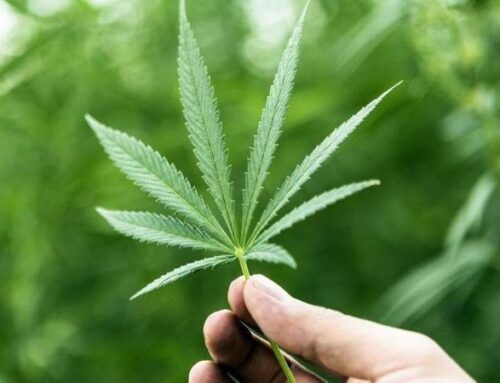A recent study carried out in the states of California and Colorado (USA) has revealed that marijuana users have a higher purchasing power, a healthier lifestyle and a more productive leisure than those who reject it.
It has even been shown that they are more sociable people and perform a greater number of outdoor activities.
However, consumption is not social, since most respondents use cannabis for physical, mental and emotional well-being.
Marijuana, throughout its history, has had to deal with a series of myths that have also affected its consumers. The smoker is usually associated with a low social level, without studies, without work and even with social and emotional problems. In short, someone who is not going through their best vital moment. But it’s not like that. A survey conducted by the consultancy BDS Analytics has revealed that marijuana users are much more satisfied with their lives than those who are not. They even earn more money, take better care of themselves and more actively enjoy their leisure time.
To carry out the research, more than 2000 adults (over 21 years old) were surveyed in the states of California and Colorado, divided into three different profiles: consumers in the last six months, affines without being users and detractors of cannabis in all its aspects. After being asked about questions about their jobs, hobbies or lifestyles, researchers were able to establish relationships between their responses and the study group to which they belonged.
With all this, the intention of BDS Analytics, a market research company specializing in cannabis issues, was to know the general profile of the marijuana consumer. “Cannabis users are far removed from the stereotypes historically used to describe them,” said Linda Gilbert, one of the people in charge of the survey. “Positive lifestyle indicators such as socialization, life satisfaction or enjoyment of sports are higher among cannabis users, at least in Colorado and California,” continued Gilbert, who also explained that these conclusions are just the beginning of a more extensive study.
BDS Analytics researchers intend to continue this work at the national level. At the moment, the next jobs will be in Washington and Oregon, and an action plan for surveys in the rest of the country is being established.
With a high level of education and better jobs
Going into the figures, one of the first conclusions reached is that marijuana users had a higher level of education than the rest of the respondents. According to the data, 20% of consumers had higher degrees, while the rest of the groups did not exceed 13%.
This can be a cause that also their gains in the work are greater between the faithfuls to this plant. For example, the average income of a Californian who loves cannabis is around 93,800 dollars a year (84,000 euros); a non-consumer although favorable, $ 72,800 (65,000 euros), and an enemy, $ 75,900 (68,000 euros). These data place the difference in almost 20,000 dollars (almost 18,000 euros) between the annual salary of a cannabis user and one that rejects its use.
Also in Colorado it was possible to see that cannabis users have better jobs. 64% worked full-time jobs, while those that were not were just over 50%.
More sociable and with more outdoor activities
Marijuana users are also more satisfied with their lives. Nearly five out of ten in the state of Colorado say they are happy with the one they carry, a number that declines among those who reject cannabis.
They also claim to be happier with their social life. In the same state, 36% of consumers confess to be sociable and have a network of friends and acquaintances, something that can only say 21% of those who tolerate marijuana but do not consume it and 28% of those who use it. they reject in all their forms.
They even say that they enjoy their leisure time more. So much so that most practice sports or outdoor activities. In addition, consumers in Colorado show that they are more interested in fine arts and are defined with more creative jobs. “Beyond social consumption, most respondents say they use cannabis for physical, mental or emotional well-being,” explains Gilbert.
Concerned about the family and given to the community
Far from the typical user image of marijuana, they are also parents. According to the California survey, 64% of cannabis-worshipers have children, compared with 55% of those who reject it. In addition, the age of small children of 37% of consumers is 10 years or less, compared to 11% of non-consumers.
The research also highlighted that more and more women are using medical cannabis. “In general, women are responsible for health in most homes, and this study suggests that they are adopting marijuana for self-care,” says Gilbert. Specifically, it refers to the recovery that warns of the use of cannabis products such as Advil and Aleve against menstrual pain. According to Gilbert, this trend must be taken into account by companies to focus their products, in order to encourage a healthy lifestyle based on this plant.
However, marijuana users not only care about their own well-being or that of their families, but also contribute to society. 38% of them carry out some kind of volunteering to help other people. One more sign that stereotypes have little to say about it.
Is marijuana the key to happiness?
This has not been the only study that has raised the relationship between cannabis users and well-being. Another research that has proved this union has been carried out by researchers at the University of Kentucky, who discovered that lonely people who used cannabis had a stronger self-esteem. In this way, marijuana users were less likely to suffer from depression because of loneliness.
Even at that point, marijuana can also be a solution, since it is highly recommended as a stabilizer of mood. Scientists from the University of Buffalo in New York have shown that cannabis can be useful in reducing depression and depression resulting from chronic stress, one of its main causes. According to his studies, chronic stress reduces the production of endocannabinoids, leading to a behavior similar to depression. In this way, cannabis regulates these compounds to once again produce a sense of well-being.
Once again, the potential of marijuana shows that the stereotypes associated with its image have nothing to do with the reality shown by studies and research. Legalization in several countries, along with its more than proven therapeutic benefits, is conquering more and more people who until now did not seem loyal to this plant.







